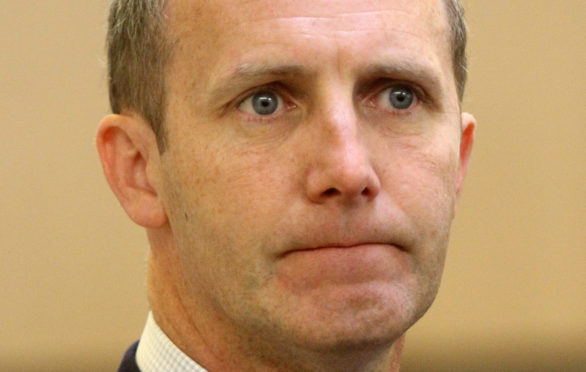Aberdeenshire Council has claimed local knowledge and vital north-east resources have been lost with the roll-out of the single police and fire service.
The local authority has published a response to a Scottish Government consultation on the impact of Police Scotland and the Scottish Fire Service.
And although the council has credited both organisations for their continued “active role” in local matters, concerns have been raised about “balancing centralisation with localism”.
Earlier this week, Justice Secretary Michael Matheson told Holyrood that the police call-handling was “better placed than ever” to serve Scotland’s communities following a major review of the service.
But the report, which will be discussed by the communities committee on Thursday, sets out a number of areas where the authority claims local services have been negatively impacted.
Among the issues outlined in the report is call handling following the hugely controversial decision to close Aberdeen’s 999 and non-emergency control rooms.
The response raises concerns that the “loss of local knowledge” might dissuade the public from reporting non-emergency matters.
It states: “It is always difficult to balance centralisation with localism, and over the last few years the work with Police Scotland has slowly been eroded due to what appears to be a far more centralist approach to policing.
“At the time of the merger of a legacy force being brought into the single force for Scotland, concerns were expressed regarding the loss of local knowledge and flexibility to adapt and respond to local issues. There was concern that one size would not fit all.
“This has been felt in relation to call handling for Police Scotland. Contacting 101 has proved problematic and it is assumed will be creating an impact on the willingness of the public to report incidents/contact the police.”
Concerns have also been raised about the perceived loss of roads policing resources in Grampian, and access to the murder investigation, firearms and flood rescue teams.
“Specialist roads policing functions that Grampian had were centralised in the Central Belt, several hours away from the north of Scotland,” the response adds. “This would not seem to be equal access.
“There did seem to be a desire to apply a policy to issues such as deployment of armed officers and the use of mounted police at football matches where they had never been required previously.”
Council officers – with feedback from councillors – have also reported a drop in police involvement at community council meetings and a “reluctance” to report to council committees, with a lack of depth in the reports.
However the response said the picture is improving, adding: “Within the last year or so there appears to be a shift towards more of a willingness to look at what works at a local level.”
Similar concerns were also expressed about the fire service merger.
Shadow justice secretary Liam Kerr, who also represents the north-east, said: “This erosion of local accountability and scrutiny is one of the reasons why many people argued against the creation of the single force in the first place. I hope that senior officers at Police Scotland will take on board this important contribution from Aberdeenshire Council.”
North East Labour MSP Lewis Macdonald added: “The broad point I would make is this didn’t have to be centralised in this way.
“I think Aberdeenshire’s experience suggests that it’s been done in the wrong way at the expense of local accountability.”
Both police and the fire service were unable to comment until after the committee meeting.
